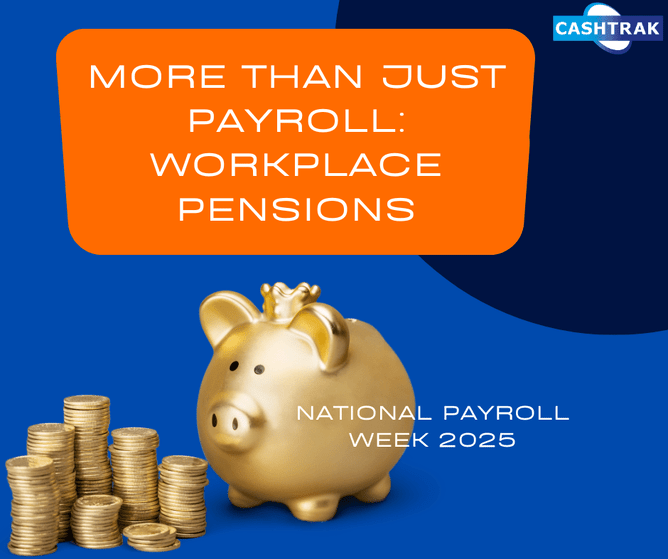As we continue celebrate National Payroll Week 2025 under the theme “Celebrate That Payday Feeling,” it’s the perfect time to shine a light on the unsung heroes behind every payslip—and the intricate systems they manage. Payroll isn’t just about getting paid. It’s about compliance, care, and complexity. One area where this is especially true is workplace pensions.
The Complexity Behind Workplace Pensions
Workplace pensions are a legal requirement for UK employers, but they’re far from simple. Payroll professionals must navigate a maze of rules that consider (please note figures correct of September 2025):
Age: Automatic enrolment applies to workers aged 22 to State Pension age
Earnings: Employees must earn at least £10,000 per year to be automatically enrolled
Employment status: Workers must be classified correctly—whether they’re eligible, non-eligible, or entitled.
Multiple jobs: Employees with more than one job may qualify for multiple pension schemes, each requiring separate assessment and management
Even those who don’t meet the automatic enrolment criteria can opt in voluntarily, and employers must be ready to handle those requests.
Declaration of Compliance – The Hidden Duty
One of the most overlooked aspects of pension management is the Declaration of Compliance. Employers must submit this to The Pensions Regulator within five months of their duties start date.
It’s a legal requirement that confirms the employer has met their pension duties—including assessing staff eligibility, enrolling them, and making contributions.
Failure to complete this declaration can result in fines, even if someone else is managing the pension scheme on your behalf. It’s a critical step that ensures transparency and accountability.
Re-Enrolment and Ongoing Duties
Every three years, employers must re-assess and re-enrol eligible staff who have opted out or whose contributions have dropped below the minimum. This triggers a re-declaration of compliance, adding another layer of responsibility to payroll teams.
Potential Penalties
When it comes to workplace pensions, the consequences of not meeting your obligations are serious. Non-compliance can lead to significant fines from The Pensions Regulator, which can escalate the longer the issue remains unresolved. Perhaps most importantly, The Pensions Regulator has a policy of making its enforcement actions public. This means that businesses that are fined or penalised for failing to meet their auto-enrolment duties are named on the regulator's website. This public shaming can cause serious reputational damage and erode the trust of both your employees and clients, making it crucial to get it right from the very beginning.
Payroll is not just payroll. It’s pensions, protection, and peace of mind.

